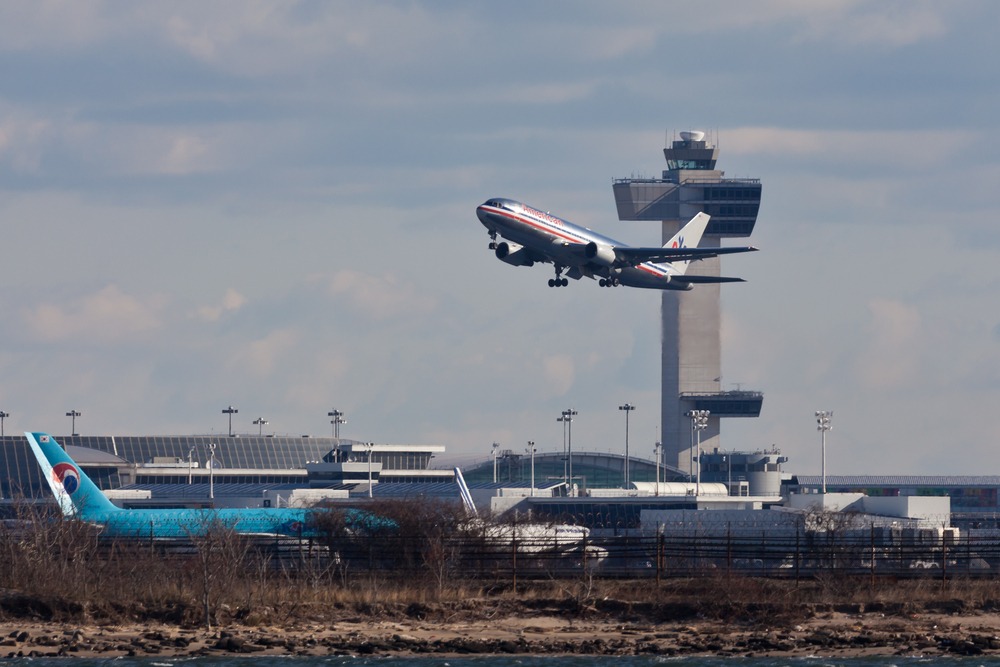
The average airline passenger in coach seating is being taken for a ride by wealthy corporate and private jet owners, say members of Flyers for Fairness, a recently formed group of U.S. transportation gurus who support efforts on Capitol Hill to reform and modernize the nation’s air traffic control (ATC) system.
Specifically, Flyers for Fairness supports the 21st Century AIRR (Aviation Innovation, Reform, and Reauthorization) Act, H.R. 2997, which would spin off ATC operations currently overseen by the Federal Aviation Administration (FAA) into a private, separate, not-for-profit corporation, reauthorize FAA funding and other programs, and spark major, much-needed ATC modernization efforts. Congress has until Sept. 30 to reauthorize the FAA.
“There are so many benefits of a modernized ATC system: it saves time, saves fuel, saves money and the system would become much more efficient,” former U.S. Secretary of Transportation Mary E. Peters told Transportation Today. “The status quo just isn’t working.”
Peters’ sentiment is held by a large swath of those utilizing the National Airspace System (NAS), which also supports H.R. 2997 — due up for a vote on the House floor soon before heading into negotiations with the Senate.
In fact, the proposed reforms are endorsed by “congressional leadership, the White House, airlines, the air traffic controllers’ union, every former FAA chief operating officer, nearly every independent aviation analyst, free market and taxpayer organizations, and former senior officials from every administration since Ronald Reagan,” noted Flyers for Fairness member Marc Scribner, senior fellow at the Competitive Enterprise Institute (CEI).
And these reforms, which are modeled on international best practices, present the only viable path to upgrading America’s lagging ATC system, Scribner said in an interview.
Nevertheless, not everyone supports H.R. 2997.
“The main opposition is the National Business Aviation Association (NBAA),” said Peters, also a Flyers for Fairness member. “We want to educate and correct any misconceptions the group has made about modernization of the ATC system.”
Peters, who served as Transportation Secretary under President George W. Bush from 2006 to 2009 — the second female to hold the job after Elizabeth Dole — continues her distinguished career as principal of Mary Peters Consulting Group LLC in Phoenix, where she advises some of the nation’s largest corporate transportation clients.
Flyers for Fairness, she said, tells the truth about the issues and wants congressional members and the public to know why this bill and these issues are important.
“A lot of this issue is encapsulated in modernization and that’s what we’re about. It all goes back to the Clinton and Bush administrations when we first started to talk about how to move away from our antiquated ATC system,” Peters said.
The United States is the sole industrialized nation allowing its own aviation safety regulator to operate its own ATC system, considered by many a conflict of interest that’s put a stranglehold on system modernization.
At the same time, “we’re using a World War II system,” Peters said, referring to the ATC system’s outdated technology.
Indeed, the issue itself also dates back eons.
Scribner explained that in a nutshell, NBAA thinks ATC reform is a giveaway to the largest airlines and calls it an extreme solution to a political budget problem. But what’s really happening is that NBAA is bankrolling opposition to ATC reform to preserve its massive ATC subsidies under the status quo, said Scribner, who has written about the topic in several CEI blogs.
“And who pays for these subsidies? All of us flying coach are forced to pay them under the current aviation tax system,” Scribner told Transportation Today.
Under the current aviation tax system, corporate jets account for more than 10 percent of ATC system use, but they pay less than 1 percent of the taxes that support the system.
But if ATC were reformed under H.R. 2997, then Congress would have to end the aviation taxes that currently support ATC and authorize a nonprofit to charge cost-based fees, he explained, consequently reducing “today’s wealth transfer from typical travelers to the ultra-wealthy.”
That’s the path Flyers for Fairness would like to see Congress travel. The group’s members say they respect NBAA members’ opportunity to operate in NAS, but “they should be willing to pay and pay fairly than what they do today,” Peters said.
Flyers for Fairness also says NBAA falsely claims that the “big airlines” would “set the rules of access” and “costs of access.”
In fact, members of the group point out that under H.R. 2997, the nonprofit ATC provider would be constrained on setting access rules and fees.
“These protections were fought for and gained by Rep. Sam Graves (R-MO), co-chair of the House General Aviation Caucus and a previous skeptic of reform,” Scribner wrote in a blog this summer. “Under law, the user fee schedule must be set in accordance with the cost-based charging principles of the International Civil Aviation Organization. The U.S. Department of Transportation would have regulatory roles for both rates and safety, in addition to having two permanent board seats.”
Highlighting these types of discrepancies is the main goal for Flyers for Fairness, which is in its infancy. Individually the members have each addressed the issue of cross-subsidies and how they benefit private jet owners at the cost of coach travelers, but together “we’ll amplify the issue as a group,” Scribner said.
“We hope to coordinate and do outreach, raise awareness with lawmakers, reach out to the public and let them know that ATC reform provides them with benefits, specifically, and to the economy, at large,” he said.